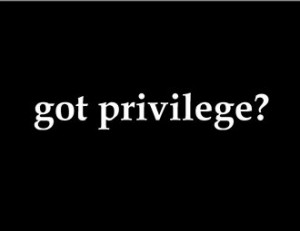When Jimmy Carter made the assertion that the intense animosity shown lately toward President Obama is based on racism, he stirred some things up. Some dismissed him, others sat up and took notice. Whatever the reaction, he has once again raised the issue of race as an underlying, yet powerful force at work in our nation.
Many of us have difficulty identifying with the charge of “racism.” We think of racism as the blatant, close-minded, hate-filled type we see and hear in white supremacists. We’re not like that. We’re more informed, open-minded, and civil than that. However, my racism and the racism I observe around me are just as damaging, maybe more so. It is subtle and insidious, and therefore rarely invites honest exchange, introspection, or action. It can pass as condescending tolerance at its most benign, or as fearful hostility in its more destructive expressions.
What are we to make of the faces and the voices of otherwise mild-mannered, middle-class, middle-aged folks screaming at town hall meetings, tea parties, and talk radio? What can we make of the movements and messages aimed against the president? The birther movement, efforts to paint Obama as a Muslim, a socialist, a Communist, a Nazi, as someone who will euthanize old people and brainwash our kids through his education speech, these are all portray him as “not one of us.”
The cries to “take back our country”, by force if necessary, is not just protesting Obama’s policies and plans. The cry is promoting the idea that we are losing our country to someone who is not one of us, and the “us” is code for “those whom we have always known to be in power.”
The noise and hostility, at least in part, appears to be those of us who have always been in charge now fearing that we are losing or have already lost the privileges that come with being in charge.
 Multicultural literature speaks of those who are “targets” and those who are “privileged.” The targets are those in the minority, whatever that minority might be. They live without many of the societal, cultural, formal or informal power that the privileged enjoy. The privileged often don’t even recognize their privilege, because it just comes with the territory. It’s in the air we breathe from birth.
Multicultural literature speaks of those who are “targets” and those who are “privileged.” The targets are those in the minority, whatever that minority might be. They live without many of the societal, cultural, formal or informal power that the privileged enjoy. The privileged often don’t even recognize their privilege, because it just comes with the territory. It’s in the air we breathe from birth.
Being a White, heterosexual male, for example, I never have to worry if my skin color is going to get me unwelcomed attention when I enter a store, stroll through a public building, or walk in a neighborhood. I can go into my bank dressed in my grubbiest working clothes and never be asked to produce more than the basic identification for any transaction. If I speak up in a group, I don’t worry that if I say something stupid, it will be attributed to my race, or if I say something notable, I will be considered a credit to my race. Yet, these are common experiences my African-American students and friends have talked about.
We in the white majority rarely think about the degree to which our history, our news, our laws, and every part of our lives are a reflection of the majority culture. Those who are the target groups rarely forget it.
Justice Sotomayor’s confirmation highlighted this reality. Many in the Senate and around the nation accused her of racism when she stated that no one could fully separate their culture from their perspective and decision-making, even in matters of the law. We were astonished. How can the law be a matter of cultural perspective? Yet, because the Supreme Court has always been overwhelmingly Caucasian and male, those of us who are Caucasian and have grown up in a male-dominated society had no reason to think about the law being interpreted through culture. Ours was always well represented.
Differences of opinion about political issues are not new. But the level of hostility being expressed indicates there’s more going on, and I suspect it’s coming from those in the majority who fear losing their foothold of power.
Printed in the Abilene Reporter News, Sunday, October 4, 2009
0 Comments until now
Add your Comment!